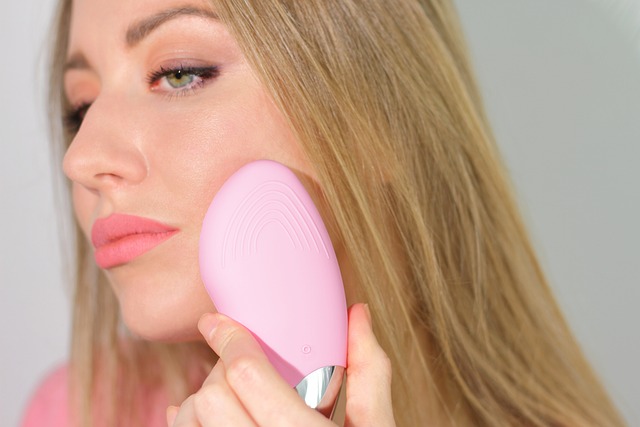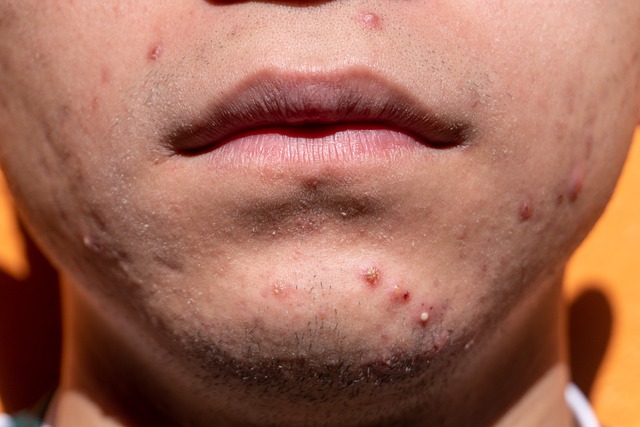Acne is a common skin condition that affects people of all ages and can be a source of frustration and embarrassment for many. With the abundance of information available online and in popular media, it can be challenging to separate fact from fiction when it comes to treating and preventing acne. Unfortunately, some of the most common beliefs about acne are actually myths that can lead to ineffective or even harmful treatments. In this article, we will explore and debunk some of the most common myths surrounding acne to help you better understand this condition and how to manage it effectively.
Myth #1: Acne Is Caused by Poor Hygiene

One of the most common myths about acne is that it is caused by poor hygiene. This misconception has been perpetuated for years, leading many people to believe that if they just wash their face more often or scrub their skin harder, their acne will magically disappear. However, the truth is that while good hygiene is important for maintaining healthy skin, it is not the sole cause of acne. In fact, over-cleansing or scrubbing too hard can actually make acne worse by irritating the skin and causing inflammation. In this section, we will explore the truth behind the first of the 5 common myths about acne and provide tips for effectively managing and treating acne.
Poor Hygiene Is Not the Sole Cause of Acne
Poor hygiene is often blamed as the sole cause of acne, but this is a common myth that is not entirely accurate. While it’s true that poor hygiene can contribute to the development of acne, it is not the only factor. Acne is a complex condition that is influenced by various internal and external factors.
One of the main causes of acne is the overproduction of sebum, an oily substance that is produced by the sebaceous glands in the skin. When too much sebum is produced, it can clog the pores and create an environment where bacteria can thrive, leading to inflammation and the formation of acne lesions.
Other factors that can contribute to the development of acne include hormonal imbalances, genetics, diet, stress, and certain medications. Hormonal changes, such as those that occur during puberty, can increase sebum production and lead to acne. Genetics also play a role in acne development, with studies showing that individuals with a family history of acne are more likely to develop the condition.
Diet can also play a role in the development of acne, with studies suggesting that high-glycemic diets and dairy products can exacerbate the condition. Stress can also trigger acne flare-ups by increasing the production of certain hormones that contribute to acne development.
In summary, poor hygiene is not the sole cause of acne, and the condition is influenced by various internal and external factors. Understanding these factors is important in developing an effective acne management plan.
Over-Cleansing or Harsh Scrubbing Can Make Acne Worse
Over-cleansing or harsh scrubbing can make acne worse by disrupting the natural balance of oils and bacteria on the skin’s surface and causing irritation and inflammation.
When we wash our faces, we remove dirt, oil, and bacteria that can contribute to acne development. However, over-cleansing or using harsh scrubs can strip the skin of its natural oils, which can lead to dryness and irritation. In response, the skin may produce even more oil to compensate, leading to clogged pores and increased acne breakouts.
In addition, harsh scrubbing or exfoliating can cause physical damage to the skin, leading to irritation and inflammation. This can exacerbate existing acne lesions and even cause new ones to form. Scrubbing too hard can also lead to micro-tears in the skin, which can create an entry point for bacteria and further increase the risk of infection.
Overall, it’s important to be gentle when cleansing and exfoliating the skin, especially if you have acne-prone skin. Use a mild, non-comedogenic cleanser and avoid scrubbing or exfoliating too aggressively. It’s also important to avoid using abrasive tools, such as loofahs or facial brushes, which can further irritate the skin. Finally, avoid washing the face more than twice a day, as over-washing can strip the skin of its natural oils and contribute to acne development.
Tips for Maintaining Good Hygiene Without Exacerbating Acne
Maintaining good hygiene is important for overall skin health, but it’s important to take steps to prevent acne without exacerbating the condition. Here are some tips for maintaining good hygiene without making acne worse:
- Use a gentle cleanser: Choose a mild, non-comedogenic cleanser that is specifically formulated for acne-prone skin. Avoid using harsh scrubs or exfoliators that can irritate the skin.
- Wash your face twice a day: Wash your face in the morning and before bed to remove dirt, oil, and makeup. Avoid over-washing, as this can strip the skin of its natural oils and contribute to acne development.
- Avoid touching your face: Avoid touching your face throughout the day, as this can transfer oil, dirt, and bacteria to the skin and exacerbate acne.
- Use oil-free products: Choose oil-free or non-comedogenic products, such as moisturizers and makeup, to prevent clogged pores.
- Keep hair off your face: Keep your hair off your face, especially if you use hair products that can contribute to acne development.
- Change your pillowcases regularly: Change your pillowcases regularly to prevent the buildup of dirt, oil, and bacteria.
- Don’t squeeze or pick at acne lesions: Squeezing or picking at acne lesions can further irritate the skin and increase the risk of infection and scarring.
By following these tips, you can maintain good hygiene without exacerbating acne and promote healthy, clear skin.
Myth #2: Acne Is Only a Problem for Teenagers


Another one of the 5 common myths about acne is that it only affects teenagers. This misconception may stem from the fact that acne is often associated with hormonal changes that occur during puberty. However, the truth is that acne can affect people of all ages, from infants to adults. In fact, adult acne is becoming increasingly common, with many people experiencing breakouts well into their 30s, 40s, and beyond. In this section, we will explore the causes and treatments of acne in adults, debunking the second of the 5 common myths about acne that it is only a problem for teenagers.
Acne Can Affect People of All Ages
Acne is commonly associated with teenagers, but it can affect people of all ages, from infants to adults. It is caused by the overproduction of sebum, which is influenced by hormonal changes, genetics, and other internal and external factors.
During puberty, the body undergoes hormonal changes that can increase sebum production, leading to the development of acne. However, hormonal changes can occur at any age, such as during menstruation, pregnancy, or menopause. This is why women are more likely to experience acne during these times.
Genetics also play a role in acne development, with studies showing that individuals with a family history of acne are more likely to develop the condition. Additionally, certain medications, such as steroids and lithium, can contribute to acne development.
External factors, such as diet, stress, and environmental factors, can also contribute to acne development. High-glycemic diets, dairy products, and certain foods can exacerbate acne, while stress can trigger acne flare-ups by increasing the production of certain hormones. Environmental factors, such as pollution and humidity, can also contribute to acne development.
In summary, acne can affect people of all ages due to the complex interplay of hormonal changes, genetics, and internal and external factors. Understanding these factors is important in developing an effective acne management plan for individuals of all ages.
Causes of Adult Acne
Adult acne is a common skin condition that affects many people, particularly women. The causes of adult acne are complex and can include a combination of hormonal, genetic, and lifestyle factors.
Hormonal factors play a significant role in adult acne. Women are particularly susceptible to hormonal fluctuations that can trigger acne, such as those that occur during menstruation, pregnancy, and menopause. Hormonal imbalances, such as those caused by polycystic ovary syndrome (PCOS), can also contribute to adult acne development.
Genetics also play a role in adult acne. Studies have shown that individuals with a family history of acne are more likely to develop the condition. Certain genetic variations can affect the way the skin responds to hormones, making individuals more susceptible to acne development.
Lifestyle factors can also contribute to adult acne development. High-glycemic diets, dairy products, and certain foods can exacerbate acne. Stress can trigger acne flare-ups by increasing the production of certain hormones. Environmental factors, such as pollution and humidity, can also contribute to acne development.
Finally, certain medications can contribute to adult acne development. For example, birth control pills, which are commonly used to regulate hormones in women, can trigger acne in some individuals. Other medications, such as steroids and lithium, can also contribute to acne development.
In summary, adult acne is a complex condition with a variety of causes. Hormonal fluctuations, genetics, lifestyle factors, and medication use can all contribute to adult acne development. Understanding these factors is important in developing an effective acne management plan for adults.
Tips for Preventing and Treating Adult Acne
Preventing and treating adult acne requires a comprehensive approach that takes into account the underlying causes of the condition. Here are some tips for preventing and treating adult acne:
- Practice good skincare: Use a gentle, non-comedogenic cleanser and moisturizer twice daily to prevent clogged pores. Avoid using harsh scrubs or exfoliants that can irritate the skin.
- Avoid picking at your skin: Picking at acne lesions can further irritate the skin and increase the risk of infection and scarring.
- Manage stress: Stress can trigger acne flare-ups by increasing the production of certain hormones. Practice stress-reduction techniques, such as yoga, meditation, or deep breathing.
- Watch your diet: High-glycemic diets, dairy products, and certain foods can exacerbate acne. Try to limit your intake of these foods and increase your intake of fruits, vegetables, and lean proteins.
- Consider hormonal treatments: For women with hormonal acne, birth control pills or spironolactone may be effective treatments. These medications can help regulate hormonal imbalances that contribute to acne development.
- Consult with a dermatologist: A dermatologist can provide personalized treatment recommendations based on the underlying causes of your acne. Treatments may include prescription medications, such as topical or oral antibiotics or retinoids.
- Avoid using heavy makeup: Heavy makeup can clog pores and exacerbate acne. Choose non-comedogenic makeup and avoid wearing makeup for extended periods of time.
In summary, preventing and treating adult acne requires a comprehensive approach that takes into account the underlying causes of the condition. By practicing good skincare, managing stress, watching your diet, considering hormonal treatments, consulting with a dermatologist, and avoiding heavy makeup, you can reduce the frequency and severity of adult acne flare-ups.
Myth #3: Sun Exposure Helps Clear Up Acne


One more of the 5 common myths about acne is that sun exposure can help clear up acne. This misconception may stem from the fact that sunlight can temporarily dry out the skin and make acne appear less noticeable. However, the truth is that while sun exposure may provide some short-term relief, it can actually make acne worse in the long run. This is because UV rays can damage the skin, leading to inflammation and increased oil production, which can exacerbate acne. In this section, we will explore the risks of sun exposure for acne-prone skin and provide tips for protecting the skin while treating acne.
Sun Exposure Can Actually Make Acne Worse
Sun exposure can make acne worse due to its effects on the skin. While some people may notice that their acne improves after sun exposure, this is usually a temporary effect, and prolonged sun exposure can lead to more frequent and severe acne flare-ups.
One reason why sun exposure can make acne worse is because it can cause the skin to produce more sebum, which can clog pores and lead to the development of acne lesions. Sun exposure can also cause skin irritation and inflammation, which can exacerbate acne symptoms.
Additionally, some acne medications, such as topical retinoids and antibiotics, can increase the skin’s sensitivity to the sun, making it more susceptible to sunburn and other sun-related skin damage. This can lead to further skin irritation and inflammation, worsening acne symptoms.
In summary, while some people may notice temporary improvements in their acne after sun exposure, prolonged sun exposure can exacerbate acne symptoms due to its effects on sebum production, skin irritation, and medication sensitivity. It is important to protect the skin from the sun by wearing protective clothing, using sunscreen, and avoiding prolonged sun exposure, particularly when using acne medications.
Risks of Sun Damage and Skin Cancer
The other problem with over-exposure to the sun is that you may be doing damage that will be a lot worse than acne. Excessive sun exposure can lead to several risks for the skin, including sun damage and an increased risk of skin cancer. The sun emits harmful ultraviolet (UV) radiation, which can penetrate the skin and cause damage at the cellular level.
Sun damage can result in several visible changes to the skin, including wrinkles, fine lines, age spots, and a rough or leathery texture. It can also cause changes in the skin’s pigmentation, leading to uneven skin tone and discoloration. Sun damage can also weaken the skin’s elasticity, leading to sagging and loose skin.
More concerning than cosmetic concerns, excessive sun exposure is also a major risk factor for skin cancer, the most common type of cancer in the United States. Skin cancer occurs when damaged skin cells mutate and grow uncontrollably, forming malignant tumors.
The two most common types of skin cancer are basal cell carcinoma and squamous cell carcinoma, which are typically slow-growing and can usually be treated effectively if detected early. However, melanoma is a more aggressive form of skin cancer that can spread quickly and is more difficult to treat if not detected early.
It is essential to protect the skin from the harmful effects of the sun by taking precautions such as wearing protective clothing, using sunscreen, seeking shade, and avoiding excessive sun exposure. If you notice any changes in your skin, such as new moles, changes in the appearance of existing moles, or other unusual growths or changes, it is essential to consult a dermatologist promptly. Regular skin cancer screenings can help detect skin cancer early when it is most treatable.
Tips for Protecting the Skin from Sun Damage While Treating Acne
- Look for a sunscreen that is labeled “non-comedogenic” or “oil-free.” This will help prevent clogged pores that can lead to acne breakouts. Choose a broad-spectrum sunscreen with an SPF of at least 30, and reapply every two hours when you are in the sun.
- Use physical sunscreens that contain ingredients like zinc oxide or titanium dioxide, which sit on top of the skin and reflect the sun’s rays. These sunscreens are less likely to irritate acne-prone skin than chemical sunscreens.
- Try to stay out of the sun during peak hours, typically between 10 a.m. and 4 p.m., when the sun’s rays are strongest. Seek shade or wear protective clothing, such as long sleeves and a wide-brimmed hat, when you must be outside.
- Be cautious with acne medications as some, such as retinoids, can increase the skin’s sensitivity to the sun. If you are using an acne medication, talk to your dermatologist about how to protect your skin from the sun’s rays.
- Use a gentle, non-comedogenic cleanser to remove sunscreen and other impurities from your skin at the end of the day. This will help prevent clogged pores that can lead to acne breakouts.
- If you have dry skin, consider using a moisturizer with SPF in the morning. This will help protect your skin from the sun’s rays while keeping it hydrated.
In summary, protecting your skin from sun damage while treating acne requires a comprehensive approach that takes into account the unique needs of acne-prone skin. By using non-comedogenic sunscreen, avoiding sun exposure during peak hours, being cautious with acne medications, and using gentle cleansers and moisturizers, you can help protect your skin from sun damage while treating acne.
Myth #4: Makeup Causes Acne


Yet another one of the 5 common myths about acne is that makeup causes acne. This misconception may stem from the fact that some makeup products can clog pores and contribute to the development of acne. However, the truth is that with proper use and selection of non-comedogenic products, makeup can be safely used without worsening acne. In fact, there are many makeup products available that are specifically designed to be gentle on acne-prone skin. In this section, we will explore the truth behind the fourth of these 5 common myths about acne, and provide tips for choosing and applying makeup to prevent acne breakouts.
Makeup Can Contribute to Acne Development If Not Used Properly
Makeup can contribute to acne development if not used properly. Certain makeup products, especially those that are heavy, oily, or comedogenic, can clog pores and lead to the development of acne lesions. Additionally, using makeup brushes or sponges that are not cleaned regularly can also contribute to the growth of bacteria on the skin, which can exacerbate acne symptoms.
One of the most common culprits in makeup-related acne is foundation. Foundation is a popular makeup product used to even out the skin tone and cover imperfections. However, certain types of foundation can clog pores and cause breakouts. Oil-based or heavy liquid foundations, for example, can trap oil and bacteria in the pores, leading to the development of acne.
Another issue with makeup and acne is that it can be challenging to remove all traces of makeup from the skin, especially if the makeup is heavy or waterproof. This can lead to a buildup of makeup residue on the skin, which can clog pores and lead to acne breakouts.
To prevent makeup-related acne, it is important to choose makeup products that are labeled “non-comedogenic” or “oil-free” and avoid heavy, oily, or thick makeup products. It is also essential to clean makeup brushes and sponges regularly and avoid sharing makeup with others.
When removing makeup, use a gentle, non-comedogenic cleanser and make sure to remove all traces of makeup from the skin. It may also be helpful to use a makeup remover specifically designed for the type of makeup you are using.
In summary, makeup can contribute to acne development if not used properly. To prevent makeup-related acne, choose non-comedogenic and oil-free makeup products, clean makeup brushes and sponges regularly, avoid sharing makeup, and use a gentle, non-comedogenic cleanser to remove makeup from the skin.
Non-Comedogenic and Oil-Free Makeup Can Help Prevent Acne
Using non-comedogenic and oil-free makeup can help prevent acne by reducing the likelihood of clogged pores, which are a major contributor to the development of acne. Non-comedogenic makeup have ingredients that are less likely to clog pores, while oil-free makeup avoids ingredients that can exacerbate oily skin.
Comedogenic ingredients, such as mineral oil, lanolin, and certain types of silicones, can clog pores and cause acne breakouts. Non-comedogenic makeup products are designed with ingredients that have a low likelihood of clogging pores. These ingredients are typically lighter and less oily than those found in traditional makeup products.
Oil-free makeup, on the other hand, specifically lacks ingredients that can exacerbate oily skin, such as mineral oil, petrolatum, and certain types of vegetable oils. Oil-free makeup also has ingredients that can help absorb excess oil and reduce the appearance of shine, making it a good option for people with oily or acne-prone skin.
By using non-comedogenic and oil-free makeup products, you can help prevent acne breakouts and reduce the severity of existing acne. It is important to note, however, that using non-comedogenic and oil-free makeup alone may not be enough to prevent acne. Other factors, such as proper skin care and a healthy lifestyle, are also important for maintaining clear, healthy skin.
Tips for Choosing and Applying Makeup to Prevent Acne Breakouts
Here are some tips for choosing and applying makeup to prevent acne breakouts:
- Look for non-comedogenic and oil-free products: Choose makeup products that are labeled as “non-comedogenic” or “oil-free”. These products are less likely to clog pores and contribute to the development of acne.
- Avoid heavy makeup: Heavy makeup products, such as thick foundations and concealers, can clog pores and exacerbate acne. Instead, choose lightweight products that allow your skin to breathe.
- Use a primer: Applying a makeup primer can help create a barrier between your skin and your makeup, reducing the risk of clogged pores.
- Clean your brushes and sponges regularly: Dirty makeup brushes and sponges can harbor bacteria and oil, which can contribute to the development of acne. Clean your brushes and sponges regularly with soap and water or a specialized makeup brush cleaner.
- Remove your makeup before bed: Sleeping in your makeup can clog pores and lead to breakouts. Make sure to remove all traces of makeup before bed using a gentle cleanser.
- Don’t share your makeup: Sharing makeup can transfer bacteria and oil between people, increasing the risk of acne breakouts. Make sure to use your own makeup products and avoid sharing with others.
- Avoid touching your face: Touching your face can transfer oil and bacteria from your hands to your skin, increasing the risk of clogged pores and acne breakouts.
By following these tips, you can help prevent acne breakouts while still enjoying the benefits of wearing makeup. Remember, good skin care practices, a healthy lifestyle, and choosing the right makeup products can all contribute to clear, healthy skin.
Myth #5: Popping Pimples Is the Best Way to Get Rid of Them


Finally, the last of the 5 common myths about acne is that popping pimples is the best way to get rid of them. This misconception may stem from the belief that by removing the pus and oil from a pimple, it will heal faster. However, the truth is that popping pimples can actually make acne worse and cause scarring. This is because popping a pimple can push bacteria deeper into the skin, leading to infection and inflammation. In this section, we will debunk the fifth of these 5 common myths about acne by exploring the risks associated with popping pimples and provide tips for treating acne without resorting to this harmful practice.
Popping Pimples Can Make Acne Worse and Cause Scarring
Popping pimples can make acne worse and cause scarring for several reasons.
First, when you pop a pimple, you are essentially breaking the skin and introducing bacteria and oil from your hands into the open wound. This can lead to further infection and inflammation, and can cause the pimple to take longer to heal.
Second, popping pimples can also push bacteria and oil deeper into the skin, causing the infection to spread and making it more difficult to treat. This can lead to the development of larger, more painful pimples, and can even result in the formation of cysts or nodules.
Third, popping pimples can also damage the surrounding skin and lead to scarring. When you pop a pimple, you are essentially creating a wound on your skin. If this wound can’t heal properly, it can leave behind a scar. Even if the wound does heal properly, the skin may still have discoloration or a visible mark.
In summary, popping pimples can make acne worse by introducing more bacteria and oil into the skin, spreading the infection, and causing scarring or discoloration. To avoid these negative effects, it is best to leave pimples alone and allow them to heal naturally, or to seek professional treatment from a dermatologist.
Risks Associated With Popping Pimples
Popping pimples can be tempting, but it is not a recommended method for treating acne. In fact, there are several risks associated with popping pimples that can make acne worse and cause further problems. Some of the risks associated with popping pimples include:
- Infection: Popping a pimple can break the skin and allow bacteria from your hands or other sources to enter the wound. This can lead to infection, which can cause the pimple to become more inflamed and even spread to other areas of the skin.
- Inflammation: Popping a pimple can also cause inflammation in the surrounding area of the skin. This can result in redness, swelling, and pain, making the pimple more noticeable and uncomfortable.
- Scarring: Popping pimples can damage the skin and lead to scarring or discoloration. If the wound can’t heal properly, it can leave behind a scar that may be permanent.
- Spreading acne: Popping pimples can also spread acne by pushing bacteria and oil deeper into the skin. This can cause the infection to spread and lead to the development of larger, more painful pimples.
In summary, popping pimples can lead to infection, inflammation, scarring, and the spread of acne. To avoid these risks, it is best to leave pimples alone and allow them to heal naturally or seek professional treatment from a dermatologist. Professional treatments can help to minimize the risk of infection and inflammation and can also help to reduce scarring and the spread of acne.
Tips for Treating Acne Without Popping Pimples
Treating acne without popping pimples is possible and can actually be more effective in the long run. Here are some tips for treating acne without popping pimples:
- Cleanse regularly: Cleanse your face twice a day with a gentle cleanser to remove excess oil, dirt, and makeup that can clog pores and contribute to acne. Avoid over-cleansing or scrubbing too hard, as this can irritate the skin and make acne worse.
- Use non-comedogenic products: Use skincare and makeup products that are labeled as non-comedogenic or oil-free, as these are less likely to clog pores and cause acne.
- Apply topical treatments: Apply topical treatments such as benzoyl peroxide or salicylic acid to affected areas to help reduce inflammation and kill bacteria. Be sure to follow the instructions on the product label and avoid applying too much, as this can cause irritation.
- Use a moisturizer: Use a moisturizer that is suitable for acne-prone skin to help keep your skin hydrated without clogging pores.
- Avoid touching your face: Avoid touching your face throughout the day, as this can transfer bacteria and oil from your hands to your skin, which can contribute to acne.
- Manage stress: Manage stress through activities such as exercise, yoga, or meditation, as stress can contribute to acne flare-ups.
- Seek professional help: If your acne is severe or not responding to over-the-counter treatments, consider seeking professional help from a dermatologist. They can recommend prescription medications or other treatments that may be more effective in treating your acne.
In summary, treating acne without popping pimples involves regular cleansing, using non-comedogenic products, applying topical treatments, using a moisturizer, avoiding touching your face, managing stress, and seeking professional help if needed.
Wrapping Up Common Myths About Acne
Acne is a common skin condition that affects millions of people worldwide. Unfortunately, there are many myths and misconceptions surrounding acne that can make it difficult to effectively manage and treat the condition. By debunking these 5 common myths about acne, we can gain a better understanding of what causes acne and how to prevent and treat it. Some of the most common myths about acne include the belief that poor hygiene is the sole cause of acne, that acne only affects teenagers, that sun exposure can help clear up acne, and that popping pimples is an effective treatment.
In reality, a combination of factors causes acne, including genetics, hormones, and lifestyle factors. Maintaining good hygiene, protecting the skin from the sun, and using non-comedogenic products can all help prevent and treat acne. By understanding the truth about acne and following these tips, individuals can take control of their skin and reduce the impact of this frustrating condition.
Read More
- Empathy and Its Part in Emotional Intelligence
- 5 Strategies for Practising Self-Regulation
- Arthritis – Its Symptoms, Causes and Treatments
- The Increasing Popularity and Benefits of Air Purifiers
- Why Fighting Chronic Stress Is Everybody’s Fight
Disclaimer: The information provided on Healthy Lifestyles for All is intended for general educational purposes only and should not be considered as medical advice. Please consult with your GP or other health professional before making any significant changes to your diet, exercise routine, or any other aspect of your lifestyle. We are not responsible for any adverse effects or consequences resulting from the use of the information provided on our blog.
Comments: I hope you enjoyed reading this post as much as I enjoyed writing it. If you liked it, please leave a comment. If you didn’t like it, disagree with something I have written (I’m okay with that), or think I got something wrong (that’s okay too), please leave a comment as well. We only truly learn from our mistakes, so I am happy to have mine pointed out.
Affiliate Links: Please also note that I may make a small amount of money if you buy one of the products I recommend in any of my blog posts. Rest assured that I have done my own due diligence, and only recommend products that have been tried and tested, and have extremely good feedback. Additionally, many of the products I recommend have 30 or 60-day money-back guarantees, so you can buy in the confidence that if a particular product is not right for you, you can get a refund.




